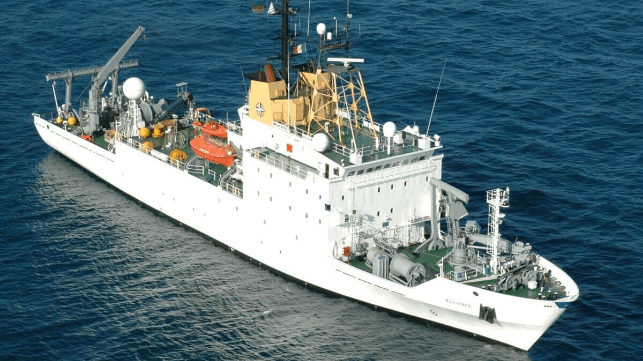NATO Studies Effects of Warming on Arctic Ocean's Sonar Properties

Courtesy of climate change, the Arctic Ocean is steadily transforming into a geopolitical and military theatre. This shift is central to the evolution of defense alliances such as NATO, with strategic interests of members states in the High North changing.
In response, NATO has heightened its research expeditions in the Arctic Ocean to help structure an appropriate defense adaptation to the region’s evolving landscape. Last week, scientists and engineers from the NATO Science and Technology Organization’s Centre for Maritime Research and Experimentation (CMRE) arrived at the Norwegian port of Tromsø to begin two new iterations of combined research missions, which will assess the impact of climate change in the Arctic.
In the first research mission, NREP24 (Nordic Recognized Environmental Picture), scientists will focus on changes in sound propagation in the central Barents Sea. A detailed understanding of sound propagation is essential to submarine warfare, and it is the primary military application for physical oceanography. The other mission, ACO24 (Arctic Climate Observatory), will collect data related to long-term environmental conditions in the same area, including marine biology and water movements. The missions will be conducted between June 8 to July 12.
The researchers onboard NATO research ship NRV Alliance will map how the transformation of the Arctic affects sonar performance in the region. The data collected will help adapt the technology for submarines, uncrewed underwater vehicles and other platforms operating in the fast-changing Arctic ocean conditions. Indeed, climate change in the Arctic could potentially affect the resilience of military installations and critical infrastructure, creating harsher conditions for NATO operations in the region.

that matters most
Get the latest maritime news delivered to your inbox daily.
The area of research for the first time will be the Barents Sea Polar front, a region where the Atlantic and Arctic water masses meet but do not mix. This polar front is highly sensitive to the environmental changes happening in the Arctic, but the full extent of the impact is yet to be known.
In 2017, NATO launched a multi-year oceanographic research project to assess changes in different parts of the Arctic Ocean. This year’s NREP 24 is the latest iteration of the multi-year project. It is funded by NATO’s Allied Command Transformation (ACT) with the participation of partner institutions from France, Norway, the Netherlands, the UK and the US. ACO 24 is the second iteration of a study launched last year in response to NATO’s 2022 Strategic Policy Concept, which identifies climate change as a “crisis and a threat multiplier” in regions such as the Arctic.
